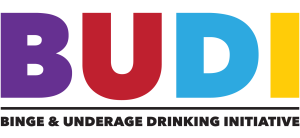On July 1, 2022, state Assembly Bill 1221 went into effect. According to this new policy, any individual in California who sells alcohol at a bar or restaurant is required to undergo a state-certified training, known as Responsible Beverage Service (RBS). The training must be completed by Aug. 31, 2022, or risk the legal and financial consequences. Provided by trainers approved through the California Department of Alcoholic Beverage Control (ABC), RBS training teaches servers about how to serve—and when not to, as the course provides information on avoiding over service and refusing service to already-intoxicated patrons.
Jennifer Hill, regional director for ABC in San Diego, says that the training provides a sense of security for business owners, staff and customers alike. “Responsible Beverage Service training is a step toward creating safer, more informed environments. When everyone is on the same page about alcohol service, we can reduce any potential harms and prevent issues before they arise,” said Hill.
This push for more informed staff at bars and restaurants has had significant backing from San Diego County prevention teams—people like Marian Novak, the program director for the Responsible Hospitality Coalition (RHC). As head of the RHC, Novak is often involved in planning and providing trainings to local businesses around San Diego County. She has been an advocate for Responsible Beverage Service trainings for years, especially after a local tragedy highlighted the dangers of over service back in 2015. Since then, San Diego county has seen a steady increase in alcohol- and drug-related crashes and DUI events—with 2021 topping the charts at over intoxicated crash incidents reported.
To help curb this historical and current trend of DUI crashes and fatalities in San Diego, Novak has been a proud supporter of the Responsible Retailer Program, an initiative that encompasses both “on-” and “off-sale” Responsible Beverage Service training. “On-sale” training refers to alcohol being sold for immediate consumption at places like bars, restaurants and special events; “off-sale” refers to businesses which sell alcohol for later consumption—liquor stores, convenience markets, grocery stores, etc.
“Bartenders are not the only ones who need to know the signs of intoxication and how to avoid over service. Any store that sells alcohol should be equipping its employees with the knowledge and skills they need to both do their job and protect their communities from alcohol-related harms,” said Novak. Though the current on-sale RBS training mandated by the new policy is a step in the right direction, Novak believes that comprehensive training is a must for anyone selling alcohol.
Prevention specialists and health advocates also promote policies that support an expansion of Responsible Beverage Service to include off-sale licenses in training mandates. ABC already provides a specialized training for liquor stores that covers topics that are unique to the off-sale environment. Specialists also advocate for policies that reduce the environmental exposure to—and risks from—alcohol.
At the local level, residents can support initiatives that look at licensing for alcohol retailers and ensure their community meets reasonable levels of alcohol outlet concentration. In San Diego County, businesses applying for on- or off-sale alcohol licenses are often bound by things like Deemed Approved Ordinances (DAOs), which establish business standards for existing businesses, and Conditional Use Permits, which regulate conditions for new businesses.
Knowledge is power, and many hope that the knowledge provided by Responsible Beverage Service training across California is the first step in giving businesses and residents the power to avoid alcohol related harms and make their communities a safer place. To assist with this effort licensees and shop owners can reach out to local prevention resources, such as the Responsible Hospitality Coalition, or the Binge and Underage Drinking Initiative, for educational resources, technical assistance and policy-oriented conversations about community solutions to alcohol-related harms. For further information on these policies and how to get involved in creating a healthy and safe San Diego, free from the harms of alcohol, contact the Binge and Underage Drinking Initiative at info@publicstrategies.org.



